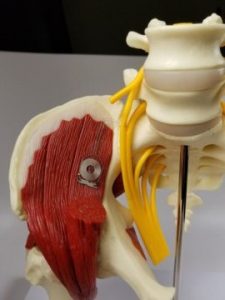Researchers at Northwestern University and Washington University School of Medicine have developed the first example of a bioelectronic medicine, according to ScienceDaily. The biodegradable, implantable, wireless device was created with the goal to speed up nerve regeneration in nerve injury patients. It works by delivering pulses of electricity to damaged nerves, accelerating regrowth, and also enhancing the recovery of muscle strength and control.
Not only does the new technology improve healing time, there’s also no need to worry about undergoing a separate procedure for removal. The implant, about the size of a dime and the thickness of a sheet of paper, absorbs naturally into the body about a week or two after implantation, taking care of its own disposal.
Currently, doctors typically offer patients electrical stimulation during the surgery, which presents a problem.
“Once the surgery is over, the window for intervening is closed,” said co-senior author Dr. Wilson “Zack” Ray, an associate professor of neurosurgery, of biomedical engineering and of orthopedic surgery at Washington University. “With this device, we’ve shown that electrical stimulation given on a scheduled basis can further enhance nerve recovery.”
Making the bioelectronic device particularly revolutionary, as it would allow doctors to continuously provide stimulation throughout various points of the recovery process, directly at the site where it’s needed, thereby reducing side effects or risks associated with conventional, permanent implants.
So far, researchers have successfully tested the device on rats, showing no adverse biological effects from the device and its reabsorption. Although not yet tested in humans, the findings offer a promising future therapeutic option for nerve injury patients.
Portable medical devices have also improved healthcare, exhibiting huge potential in monitoring, medical therapeutics, diagnosis, and fitness and wellness. This year alone, researchers from National Tsing Hua University and National Cheng Kung University developed a low-cost, portable medical sensor package capable of warning users of medical issues, ranging from severe heart conditions to cancer, according to a new study published in the ECS Journal of Solid State Science and Technology. Devices like these, which are transforming the likes of the healthcare field.



